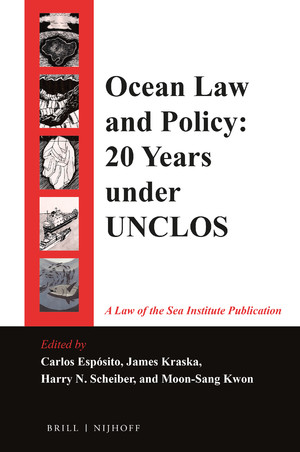ESIL Conference 2014 in Vienna: Call for Papers on «National Law as a Generator of International Law»
octubre 28, 2013
The call for papers or posters for the ESIL Vienna Conference on 4-6 September 2014 includes:
Agora 2: National Law as a Generator of International Law
National law, both statutory and case-law, can influence international law in many ways. National law may serve as a template for treaties or lead to the development of customary law and, most importantly, national law may evidence general principles of law. Classic examples are the impact of the US Foreign Corrupt Practices Act on the OECD Anti-Bribery Convention or the Truman Proclamation’s influence on the customary international law of the continental shelf. A particularly fascinating role is played by domestic courts; their jurisprudence may take on a special law-making role as relevant state practice and, often at the same time, as opinio iuris evident in many immunity and extraterritorial jurisdiction cases.
This agora will address the various ways that national law and jurisprudence influence international law. What is the particular role of domestic courts? Does this role depend on national traditions? Is it shaped by transnational judicial dialogue or are courts in different states acting as isolated agents? How have international courts incorporated national law or national law concepts in their reasoning? How do international courts and tribunals ‘select’ the domestic case law on a particular matter?
The deadline for proposals for papers or posters is 15 January 2014.
Bohoslavsky/Espósito: Principles Matter: On the Legal Status of the Principles on Responsible Sovereign Financing
marzo 25, 2013
En esta página de SSRN se puede descargar el capítulo que hemos escrito con Juan Pablo Bohoslavsky, experto en deuda soberana de la Unctad, «Principles Matter», para el libro que editamos junto a Yuefen Li, Sovereign Financing and International Law (Oxford University Press September 2013). Copio el abstract:
Abstract:
This chapter considers the role of international law in sovereign financing, a legal area currently underdeveloped. It briefly presents the content and implications of the Principles [the UNCTAD principles for responsible sovereign lending and borrowing] and analyses whether and to what extent international law supports them. The Principles are embodied in a itself so called soft law instrument. However, a few principles are backed by international treaties and customary international law, and some others could even be considered as general principles of international law. This chapter argues that the legal character of the Principles is not determined by its soft law shell and will mainly depend on two variables: (a) the extent to which each principle is supported by hard rules of international law, including general principles of international law, and; (b) their intrinsic value to persuade stakeholders that they are necessary in international sovereign financing to overcome global problems. The fact that the Principles are well-rooted and broadly tested in domestic laws influences these two variables.Keywords: soft law, informal sources of international law, general principles of law, general principles of international law, soft law instrument, treaties, customary international law
El texto estará disponible gratuitamente en SSRN hasta que se distribuya el libro dentro de un par de meses. Esperamos también que pronto haya una versión española del capítulo y del libro.








